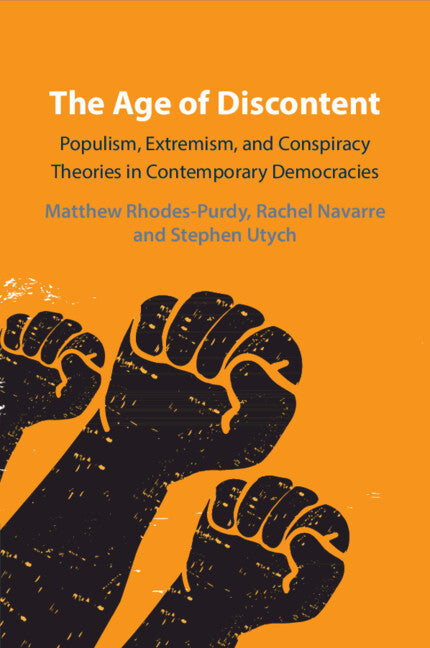The Age of Discontent
Populism, Extremism, and Conspiracy Theories in Contemporary Democracies
Author(s): Matthew Rhodes-Purdy, Rachel Navarre, Stephen Utych
Couldn't load pickup availability
🚚 Please note we can only ship within the UK.
FREE delivery on books (excluding sale).
Delivery for other items is £1.50 - £4.50, calculated at checkout.
T&Cs apply.
Free click & collect on all orders.
The years following the 2008 financial crisis produced a surge of political discontent with populism, conspiracism, and Far Right extremism rising across the world. Despite this timing, many of these movements coalesced around cultural issues rather than economic grievances. But if culture, and not economics, is the primary driver of political discontent, why did these developments emerge after a financial collapse, a pattern that repeats throughout the history of the democratic world? Using the framework of 'Affective Political Economy', The Age of Discontent demonstrates that emotions borne of economic crises produce cultural discontent, thus enflaming conflicts over values and identities. The book uses this framework to explain the rise of populism and the radical right in the US, UK, Spain, and Brazil, and the social uprising in Chile. It argues that states must fulfill their roles as providers of social insurance and channels for citizen voices if they wish to turn back the tide of political discontent.
- Resolves a key theoretical debate of economics vs. culture
- Uses a broad comparative perspective that includes multiple world regions
- Advances a unique analytical framework (Affective Political Economy) to show how economics may influence seemingly unrelated domains of human experience
Share


